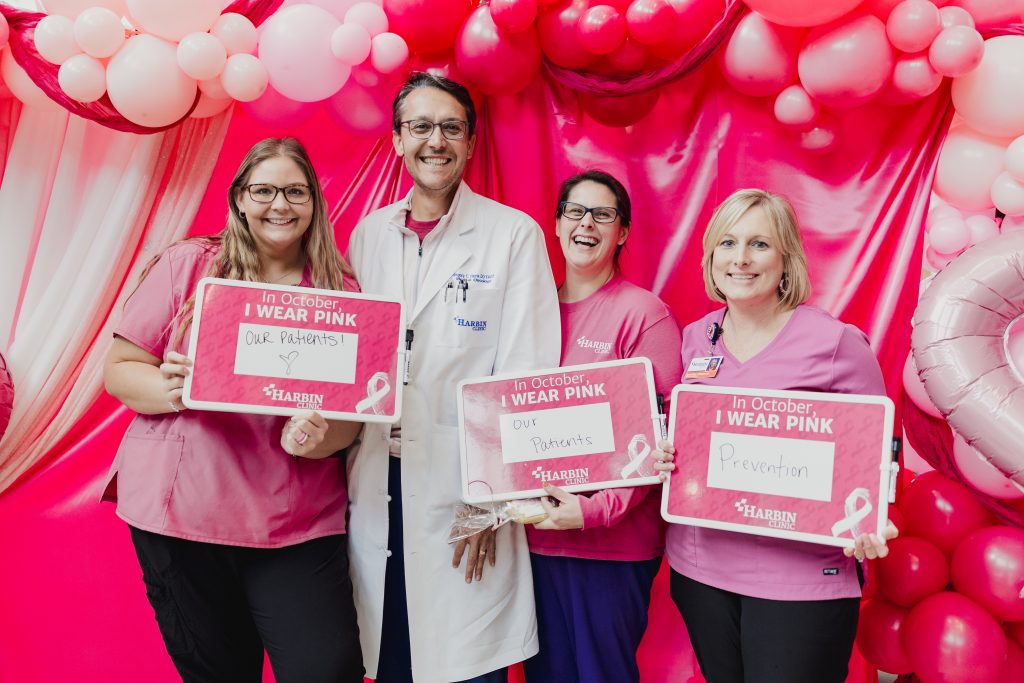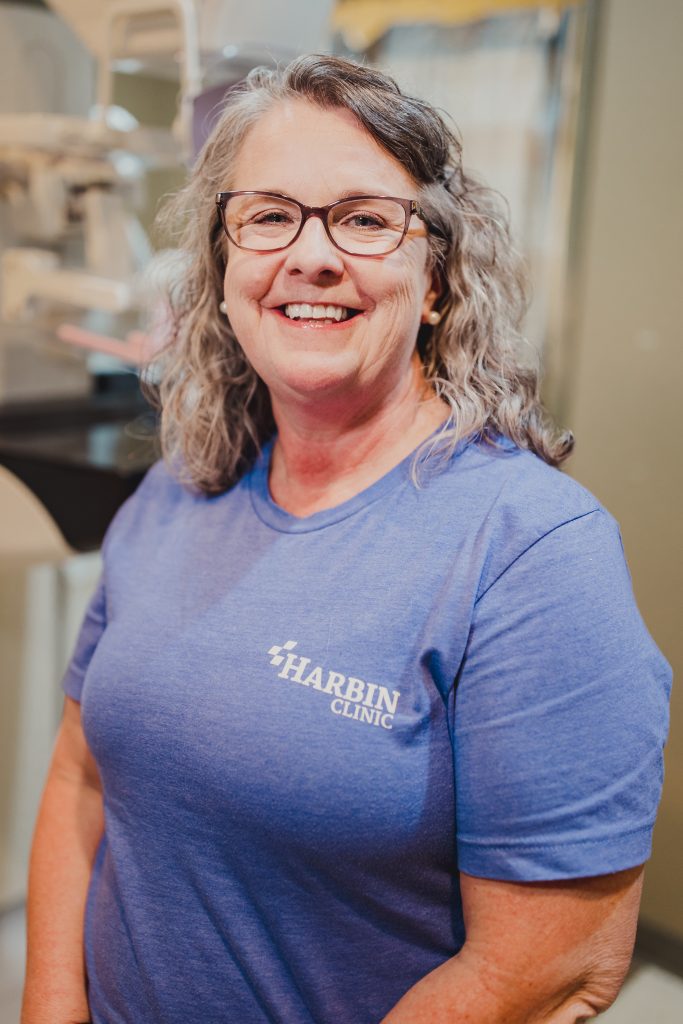
Photos Cameron Flaisch
Approximately one in eight women will be diagnosed with breast cancer in their lifetime. In 2023, an estimated 2,800 men will be diagnosed with breast cancer. Harbin Clinic physicians advocate that early detection of breast cancer is critical to successful treatment and recovery, and one of the most accurate ways to detect the disease in its earliest stages is to get a mammogram. But don’t just take their word for it. Kim Raulerson, a breast cancer survivor and a mammography technologist with the Harbin Clinic Imaging Cartersville, is living proof of how early detection, and a positive mindset, can save lives.
Kim shares that when she was accepted into a radiology technologist program, life got busy, and she put her yearly breast cancer screening on the back burner. With no family history of breast cancer and no pre-existing risk factors, she wasn’t worried about her annual check-in.

not that simple. Breast cancer doesn’t discriminate, and I found out the hard way.”
Kim made an appointment for screenings the following year but never expected a breast cancer diagnosis. “It was a complete shock,” Kim says. “They caught it early, but my doctor told me if I had waited one more year, it would have been too late.” After her diagnosis, Kim’s doctor recommended a lumpectomy.
While in surgery a month later, Kim’s doctor discovered the cancer had spread to her lymph nodes. “I had to start chemotherapy and radiation while still going to school,” Kim explains. “It was the most difficult journey I’ve been on, but I wouldn’t change it.” After a lumpectomy, 16 weeks of chemotherapy and 33 radiation treatments, Kim could finally say that she beat breast cancer—and graduated from her radiology technologist program.
Along with Kim, the rest of the team at Harbin Clinic Imaging Cartersville is committed to the early detection and diagnosis of breast cancer. Harbin Clinic invested in a state-of-the-art 3D mammography system that provides crystal-clear images of breast tissue for Cartersville patients. This technology makes it easier to detect masses and tumors and begin developing a personalized treatment plan for patients.
“I can’t put into words how important it is for women to be here every year to get a mammogram,” says Kim. “When it comes to breast cancer, everyone is vulnerable.”
Kim’s approach to her journey is filled with positivity and hope. “I always tell people your story doesn’t end at your diagnosis,” Kim says tearfully. “It’s tough, but a lot of it is attitude and mindset. My advice to others who have been diagnosed is to hold on to hope wherever you can find it.”
Harbin Clinic medical experts also encourage understanding how to reduce risk. While certain factors, such as family history, cannot be changed, there are lifestyle choices you can make to minimize a diagnosis.
They recommend the following:
- Limit alcohol consumption.
- Avoid smoking.
- Control your weight.
- Be physically active.
- Conduct regular breast exams at home.
- Understand your family history.
Finally, Harbin Clinic medical experts encourage the community to join them in wearing pink this October. Harbin Clinic wears pink to memorialize, honor and raise awareness about breast cancer. But it is also more than a t-shirt; it’s a commitment to action.
A commitment to:
- A breast self-exam once a month.
- A mammogram every year if over 40 years old.
- An annual doctor’s appointments that include a breast exam.
- Having conversations with loved ones about early detection and breast cancer prevention.
- Funding research and providing essential services.
When asked why she wears pink, Kim Raulerson says, “I wear pink in October because I’m living proof of how early detection can save lives.”
This October, wear pink with Harbin Clinic, schedule a mammogram or to learn more about the collaborative services provided by the medical professionals at Harbin Clinic, visit harbinclinic.com.











